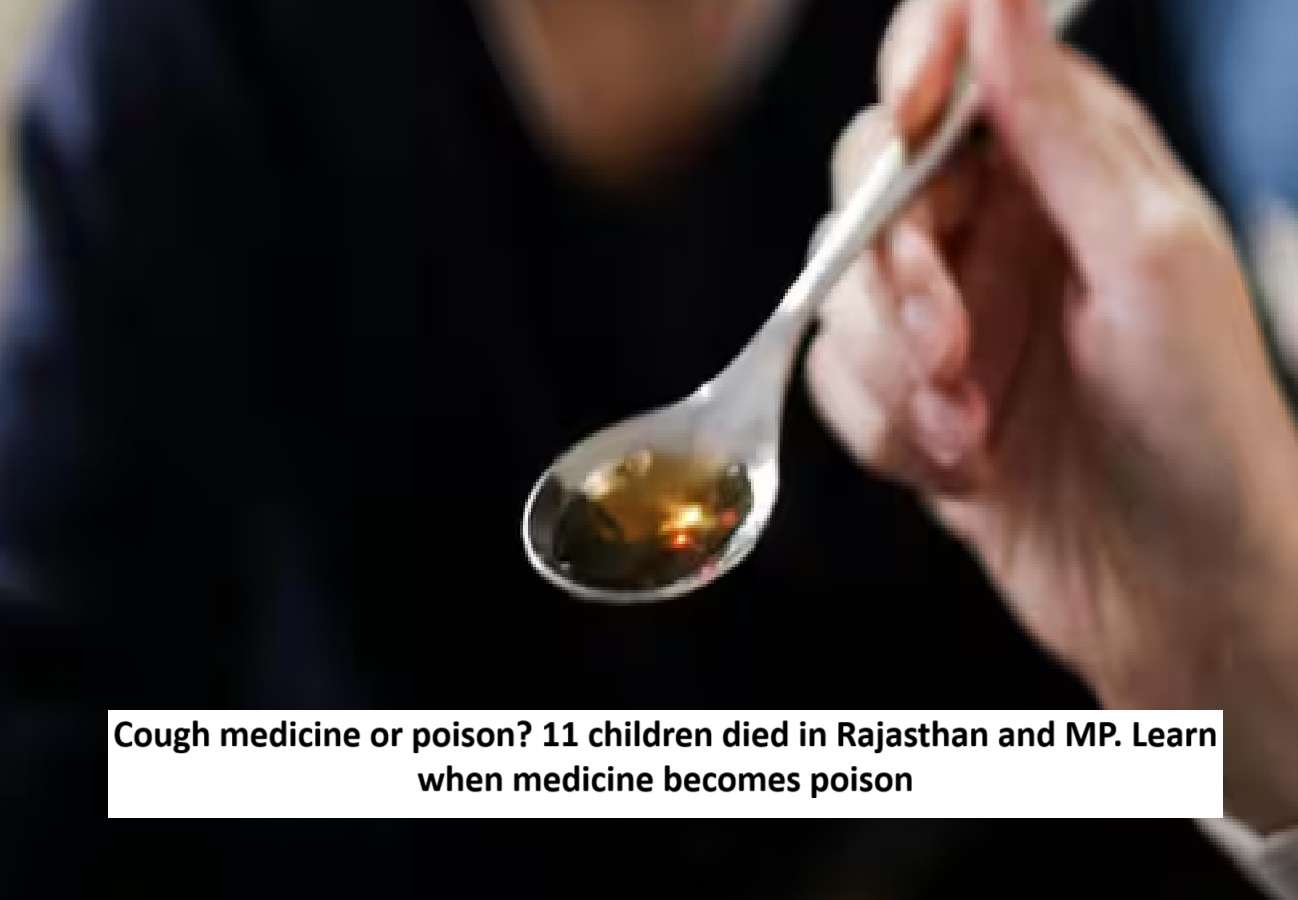
News Topical, Digital Desk : Cough Syrup Deaths: Could the cough syrup you're giving your children be fatal? In fact, 11 children died in Madhya Pradesh and Rajasthan after consuming generic cough syrup. Following this, the Drug Controller immediately banned the syrup's use and sent it to a lab for further testing. In addition to these deaths, several other children fell ill after consuming similar syrups. Once again, the quality of cough syrups is under suspicion, as these syrups distributed in government hospitals have endangered the lives of children.
This isn't the first time such cases have been reported. Previously, reports of children's deaths emerged in Madhya Pradesh's Chhindwara district. Currently, the Rajasthan government's health department has formed a three-member committee to investigate the deaths due to the drug. More than 20 batches of the drug, Dextromethorphan Hydrobromide Syrup IP 13.5 mg/5 ml, have been banned, and samples have been sent for testing. Let's explain how syrups can be fatal and what precautions should be taken against them.
What is Dextromethorphan Hydrobromide Syrup?
This syrup was discovered in the 1950s and was touted as a safe alternative to habit-forming drugs containing codeine. It is a cough suppressant commonly prescribed by doctors for dry coughs. Its primary function is to block cough-inducing signals in the brain, providing relief to patients. It is produced through chemical processing, with dextromethorphan hydrobromide as the active compound. It is often given as a syrup to make it easier for children to drink.
What do experts say?
The American Academy of Pediatrics (AAP) and the US FDA have stated that children under the age of 4 should not be given dextromethorphan or similar over-the-counter syrups. The FDA report states that such syrups can cause breathing problems, sleep disturbances, dizziness, seizures, and even death. Several reports also state that it should not be given to children under 2 years of age and should be given in limited quantities to children between 2 and 6 years of age. Furthermore, people over 6 should use it only under medical supervision. Doctors advise that if you already have liver, kidney, or other serious health conditions, you should consult a doctor before using it.
--Advertisement--

 Share
Share



